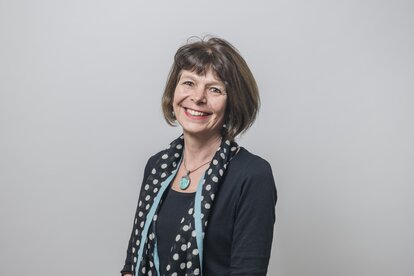with Sanat Sapkota
“When our husbands or sons left, they left; we didn’t know anything. But now we understand about buying the ticket, getting the visa, leaving a copy of the documents behind, about what happens if someone dies and how the body should be brought back, about making savings, about managing money wisely – we have learned about all these things.” Ganga Magar, Ramechhap.
Some 1,500 individuals, over 90% of them men, continue to leave Kathmandu airport daily on labour migration. According to an ILO update earlier this year, close to 50% of Nepalese rely to some extent on financial help from relatives outside the country. Migrant remittances are undoubtedly a huge boon to families and the economy overall, but as is widely recognised, they also have a social cost.
Efforts to ensure safer migration require working not only with the migrants themselves, but also their families. Thus under SaMi, our Safer Migration project – managed by Helvetas in partnership with the Swiss Agency for Development and Cooperation, SDC, and the Government of Nepal – a variety of activities are conducted with left-behind family members. Psycho-social counselling is one service, discussed in a previous blog; financial literacy training, supporting the constructive use of remittances, is another. A training module has been developed to this effect, in partnership with the Nepal Federation of Savings and Credit Cooperative Unions, NEFSCUN. It is being implemented in six of SaMi’s working locations: Kailali, Khotang, Nawalparasi, Ramechhap, Sarlahi, and Sunsari.
On a recent visit to Ramechhap with my colleague Sanat Sapkota, SaMi’s Senior Training Management Officer, we had the opportunity to observe a number of training sessions in practice, and to talk with participants as well as members of the local NGO implementing the training, CHURDEP (Community Human Resource Development Programme). The training comprises 28 weekly sessions, each of two hours – thus covering some seven months in total. An illustrated book and flip chart is used; in future, it is hoped to supplement these with more audio-visual material. On the day we visited, the topic was savings. The pictures showed how rats and ants save grain for the winter; humans, being far more intelligent, should thus also save. This led to a story about a thrifty rat who prospered and a profligate rat who went hungry; it was humorous and participants laughed, but in discussing the story afterwards, everyone evidently got the point, and shared their own experiences.
Much of what we heard and saw affirmed the findings of a recent review of the financial literacy programme, conducted by an external consultant. Three particular observations follow.
General information about migration is appreciated
Participants clearly value the opportunity to learn more about the basic “dos and don’ts” of migration, as Ganga Magar’s comment illustrates. On leaving, their migrating husbands or sons (occasionally daughters) enter another world – one which those left behind often find difficult to comprehend. Once better informed, they start to see migration more as a household livelihood strategy in which they can play their part, through managing remittances carefully. At the same time, they are better able to contribute in an informed and useful way to household financial discussions – which in turn increases the confidence of their husbands or sons, who worry about mis-management in their absence. The review of the training found that improved family relationships were widely reported. Monthly home visits during the training period are considered to have helped this.
“Home visits are really important to see with one’s own eyes the family dynamics – whether relationships are mutually supportive. The family members are asked to make a plan of what they want to achieve in the coming five years; we try to ensure that everyone is involved in discussing and sharing this.” Sagar Bikram Basnet, Director, CHURDEP
Grouping individuals of similar ability would speed learning
“The main problem we have is the different levels of ability within the groups.” Rolina Magar, financial literacy trainer, CHURDEP.
Seven months is a long period for a training, and some participants – notably younger, educated women – become impatient after a while. Older, more often illiterate women sometimes struggle to follow. Participants are selected on the basis of geographical proximity and need (targeting disadvantaged groups such as Dalits and Janjatis). There are of course benefits in having some diversity within a group, but it was generally agreed – and recommended by the review – that greater homogeneity in educational levels should be sought when establishing future groups.
Entrepreneurial activity should not be taken as a major measure of training success
The training encourages participants to use remittances productively by establishing small enterprises such as livestock rearing, a small shop or a tailoring business. Overall, some 20% of all those completing the training have done so; in Ramechhap, of the 376 trainees, 63 have started businesses – supported in their efforts through monthly home visits by the trainer. Some have also taken up life insurance schemes. Yet perhaps by far the greatest benefit overall is that reported in household budgeting and saving. Well over half all the households engaged in the training in the six locations covered have increased their savings, often simply through being more conscious of expenditures, and cutting down on unnecessary items. Combined with better family relationships, these are significant positive and potentially long-term outcomes.



